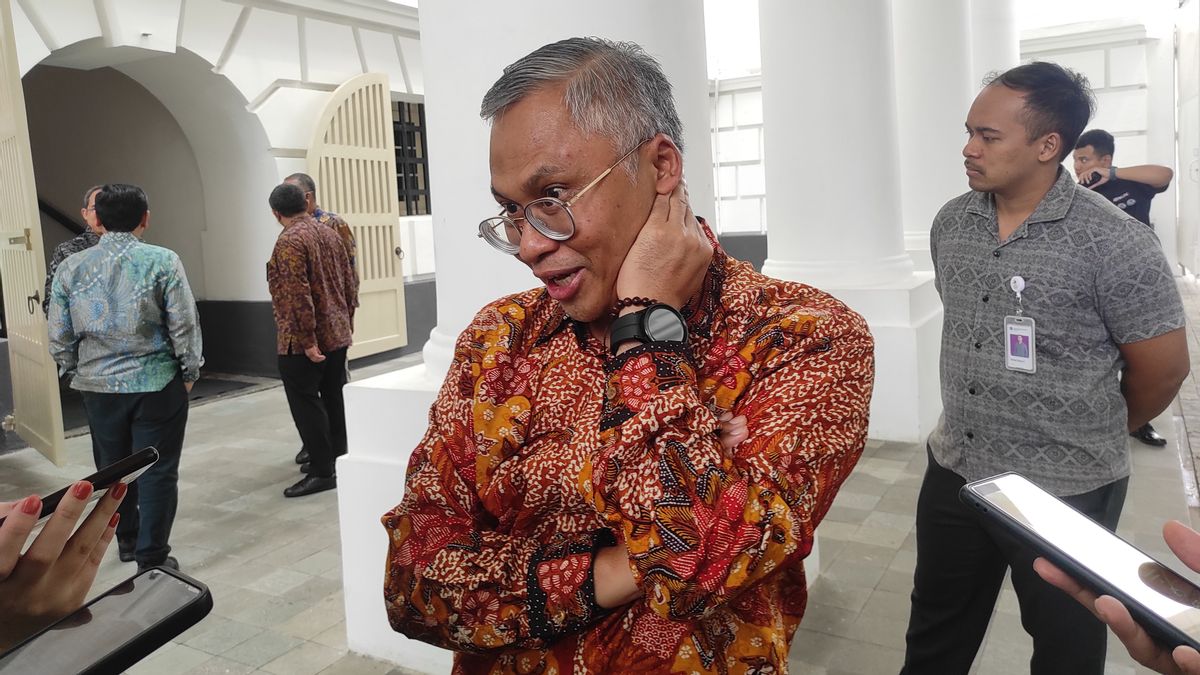JAKARTA - Director General of Financing and Risk Management, Suminto said that the weakening of the rupiah exchange rate and the increase in the BI-Rate benchmark interest rate will have an impact on increasing interest spending on government debt.
"We understand that market movements, both the weakening of the Rupiah and the increase in yields (yield) will affect interest spending," Suminto told the media, Thursday, April 25.
Suminto said that the average year to date (ytd) of the rupiah movement is still under control and hopes that market movements, especially due to this global factor, both geopolitical tension and the monetary policy direction of developed countries, especially the US, are temporary and do not continue.
Suminto said the position of government debt until the end of February reached Rp8,319 trillion consisting of Rp7,336 trillion or 88.2 percent of Government Securities (SBN) sourced from both domestic and global markets and Rp982 trillion or 11.8 percent in the form of loans.
According to Suminto, most of the Government's debt of 88.2 percent is the debt of the market, both the domestic market and the global market. As for loans, both multilateral, bilateral, and commercial, the portion is quite small at 11.8 percent.
Meanwhile, rupiah denomination is the majority in government debt, which is 71.92 percent. Meanwhile, in foreign currency, it is 28.08 percent.
According to Suminto, the risk of Indonesia's debt portfolio is well managed and in terms of Currency Risk is 71.92 percent outstanding debt in Rupiah, so that it can be managed by the risk of exchange rate movements.
Meanwhile, in terms of risk, refinancing or repaying loans by applying for new loans. As of February 2024, the government's average debt tenor or Average Time to Maturity (ATM) is 7.97 years old. According to him, this is quite long so that the risk refinancing is quite under control.
Meanwhile, in terms of interest rate risk, apart from burden sharing with Bank Indonesia (BI), the government's debt to use the floating rate is only 9.7 percent of the total outstanding debt.
According to Suminto, the Government's debt portfolio can be managed sensitively to the movement of interest rates in the market.
Suminto said that his party will continue to anticipate and mitigate the risks of this market movement, including in the context of paying debt obligations, both the principal and interest on debt. Because Indonesia has good capacity to fulfill all debt obligations.
SEE ALSO:
"The government and the relevant authorities, especially BI, are building excellent coordination and synergy in mitigating the risks of this market," he said.
In the 2024 debt procurement, the Ministry of Finance implemented a flexible and opportunistic strategy to obtain financing through optimal and efficient debt. This is related to the time of issuance, tenor, exchange rate, and instrumentation.
Meanwhile, debt procurement through SBN is carried out through regular auctions every Tuesday, issuance of retail SBN, and issuance of global SBN. In addition, cash loans (program loans) were also made from several multilateral and bilateral creditors.
The English, Chinese, Japanese, Arabic, and French versions are automatically generated by the AI. So there may still be inaccuracies in translating, please always see Indonesian as our main language. (system supported by DigitalSiber.id)
















